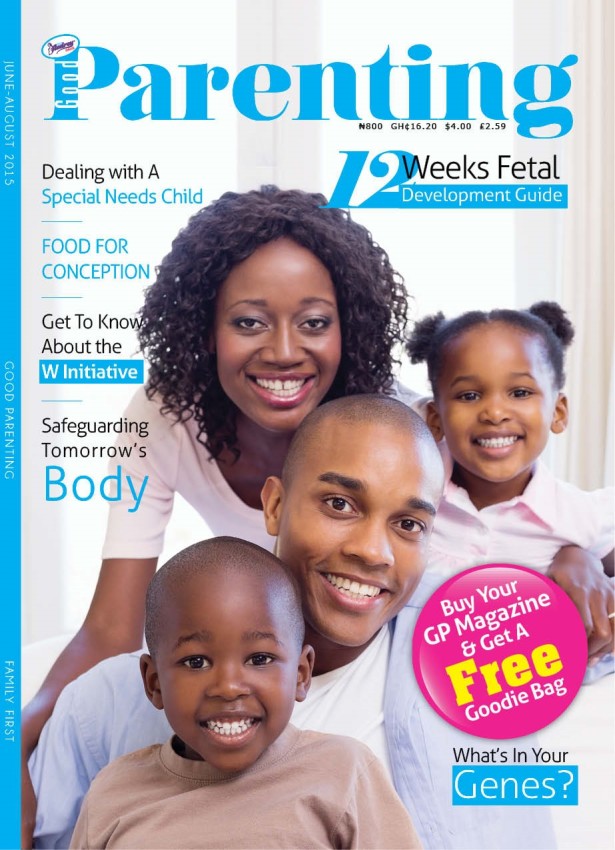ThiThere are several hazards of permissive parenting as discussed in this interview with Susan Newman, PhD.
Dr. Susan Newman, the author of The Book of NO, says today’s trend in parenting can lead to too much permissiveness.
“For three years, I didn’t go to the bathroom by myself.”
For example, the above quote was confessed by my friend, chagrined that her children were constant companions while she answered nature’s call. She just couldn’t say no. Newman says parents tend to think of the word “no” as a negative, having all sorts of harmful ramifications – including running a parent’s guilt meter high. But, she says, the truth is, constantly caving into our children’s wants, is the real culprit for harm. Take a look at Dr. Newman’s take and let us know what you think! — Laurel Moglen, TMC, Web Content Manager
Do you agree with the prevailing advice for parents that they should discipline firmly, but lovingly?
The parents that are going to have the least trouble with their children are the parents that are authoritative. This is the opposite of permissive parenting. The authoritaitve parents set boundaries, have discipline rules in play and stick to them. They are also very warm and listen to their child. It’s so important for a child to be heard. But it can be a fine line for parents. There are times when you just want to lay down the law. But if you make your rules and set your boundaries in advance, instead of making them up as you go along, parenting is a lot easier, and children respond better. For example, bedtime is bedtime, or snack time happens at x time, and that’s it. [Tweet “This makes parents the parent and not the child’s friend.”]
Are today’s parents trying too hard to be their child’s friend?
Yes, many are, and that’s where parents get into trouble. They want their children to feel like they’re the best parents in the world. But, when kids are young, they really need their parents to be parents. That doesn’t mean parents can’t have fun with their children. But, being their child’s pal isn’t helpful. Children need rules and role models. There’s plenty of time down the road to be your child’s best friend forever — when s/he becomes an adult.
Here’s what I think parents aren’t understanding.
When you say “no” to your children, for example, to whatever gismo it is they want — that all their friends have — parents fear their children will be upset with them, and their relationship will be marred for life. These are moments that pass. Your children are not going to toss you into the parenting pit forever. They’re going to find something far more significant to fault you for later in life. You really want to think about, as a parent, do you want to be remembered as someone that could be walked all over, or as someone who taught their children about values, boundaries, and respect.
Also, there is this trend of listening to your children and empowering your children. Parents wrongly believe that by giving in to our children or allowing our children to make decisions that are not age-appropriate, they are recognizing them as whole, capable people. But, actually, we’re allowing them to rule the roost, to call the shots.
Can Children can turn into tyrants?
They can grow up to feel entitled, or they feel they can dominate their parents and family. They come to believe they can run the show. That kind of behaviour is not going to fly when they’re with their friends. Also, on the parents’ end, they can begin to feel put upon, feel they’re being taken advantage of. At some point, if this permissiveness stays in place, parents can begin to feel powerless.
Children should have a voice, and empathising with them is the way to go, but there are going to be times when they don’t get their way. So, laying down the rule now and then is fine. Don’t beat up on yourself because you raised your voice, and said, “It’s bedtime now!” (If this is a consistent pattern, it’s a different story.) But now and then, it’s okay.
What’s the difference between authoritarian parenting and authoritative parenting?
Authoritarian parenting, popular in other decades, is all about having a lot of discipline, and not hugging your kids, and not having a lot of warmth, and not listening to your children.
Authoritative parenting is warm and loving. An authoritative parent listens to their child, but also sets boundaries and is consistent about those boundaries. Authoritative parents also will admit when they’re wrong. It builds up their credibility. You can go too far of course. But now and again, when you are clearly wrong, admitting it out loud to your children humanizes you, and is good modelling for them.
A permissive parent is warm and loving — but that’s it. Permissive parents aren’t giving children additional essentials for a healthy childhood, which are limits and routines.
Why do you think our generation is having a tough time saying “no”?
Keeping up with the Jones’ is one culprit. Although such a drive goes back a couple of generations, today, the competition to keep up is more pervasive. Perhaps it has something to do with the internet – the access to knowledge and “stuff” is so easy and quick.
Also, there are billions of dollars poured into advertising to young children, and that’s making a major impact on what children are seeing, wanting, and then prodding their parents to buy. Parents, many against their own instincts, cave-in to their children’s pleas for these gadgets. Instead, parents need to define their boundaries around toys and possessions, and stick to them – no matter what kind of stuff other children have.
What are your top tips to help parents say “no” to their children?
- Whatever upset your child is experiencing will pass. They won’t remember you for it.
- Don’t make a habit of putting your children’s wants and wishes before your own.
- Forget keeping up with the Jones’ (a reason many parents say yes).
- Think about what’s really involved before you agree (more drive time, more money, later bedtimes, the wrong crowd…).
- Children get over disappointment far better and faster than adults do.
- Don’t say yes to avoid confrontation (or because it seems easier).
- Appropriate use of saying no teaches important life lessons and skills.
- Saying no helps instil your beliefs and values.
- Remember, it is your parental right to say no.
- Park your guilt. As adults, your children will find something other than your refusals to fault you for.
- Your children may even thank you one day for teaching them how to say no.
Positive parenting skills permissive parents can emulate
- They have to create quality time for their children.
- Making eye contact with the children whenever they are communicating as this helps tremendously.
- Apply positive discipline when he or she does something wrong.
- Also, the parent has to find out the child’s interest. As school time is mostly online for now, parents can adequately study their child. This is to know their strengths and help them cultivate their talents. This further strengthens the bond between the child and the parents.
- The parent should start to have meals together with their children. Mealtimes are known to facilitate bonding.
Susan Newman, PhD blogs for Psychology Today magazine about parenting and family relationships.
Read Also:



